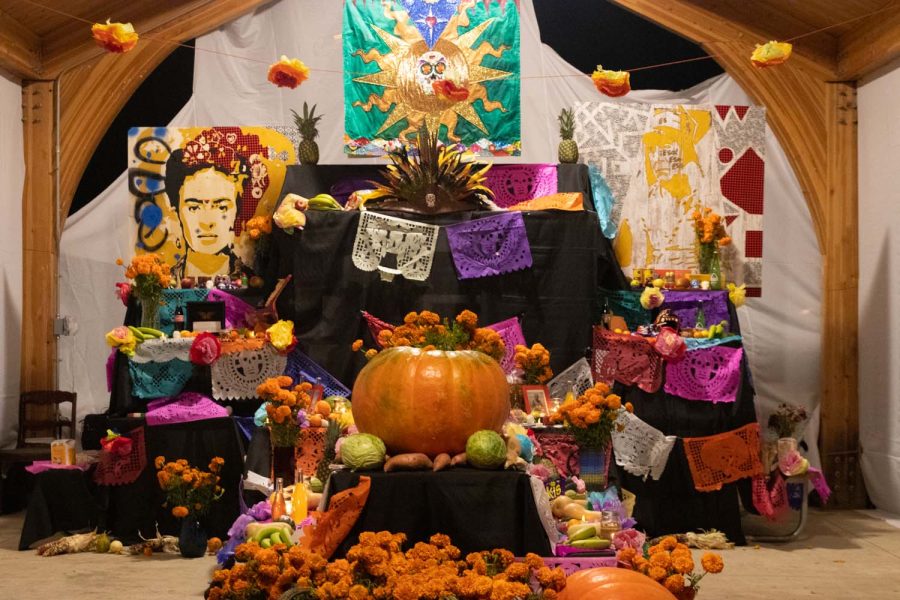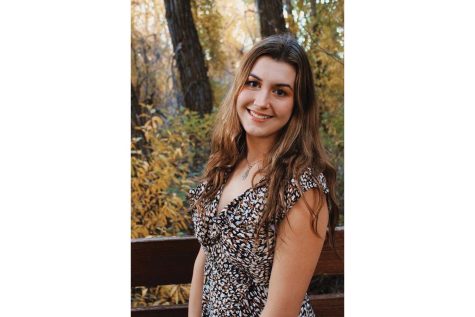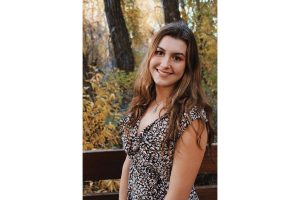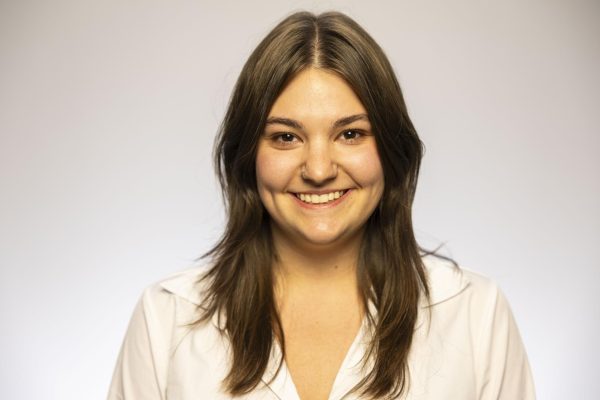Iowa City celebrates Día de los Muertos at a public ofrenda exhibit
Local artist Miriam Alarcón Avila presents her ofrenda exhibit at Wetherby Park to honor the lives lost because of COVID-19 in Iowa City.
An alter created by Miriam Alarcón Avila is displayed at the Día de los Muertos ofrenda at Wetherby Park in Iowa City on Monday Nov. 1, 2021. The table has items to remember loved ones that have passed away, including flowers, candles, food, and more.
November 2, 2021
“I will always remember…
I will never forget the way…
I am grateful to have known them because…”
These words were printed on a sheet of paper at Wetherby Park in front of the community ofrenda designed by Iowa City artist Miriam Alarcón Avila.
Alarcón Avila has celebrated Día de los Muertos, or the Day of the Dead, since she was a young girl growing up in Mexico City. This year, Alarcón Avila wanted to create a space where Iowa City residents could come together and celebrate life, but also honor and say farewell to those who died because of COVID-19.
“Last year, to see so many people die and to see so many people that can’t say goodbye, just breaks my heart,” Alarcón Avila said. “It is nice to have a public ofrenda to realize loss and acknowledge the struggle.”
Día de los Muertos originated in Mexico. The traditional celebration honors deceased family members and remembers them through various means, including the ofrenda — where offerings and gifts are left.
The ofrenda was decorated with candles, flowers, and numerous offerings. Photos of family members were placed around the altar, and larger pieces of art were presented near the back. Paper and pens were provided for individuals to write notes, goodbyes, and remember their loved ones.
The ofrenda served as a way for community members to connect to one another. Families were able to meet, mourn, and celebrate life together.
RELATED: Latino Fest Iowa City returns after yearlong pause
One woman was out in the frigid temperatures for hours, painting traditional Día de los Muertos sugar skulls makeup on the faces of other community members.
The event recognized the current risk of COVID-19, Alarcón Avila said, adding that she made safety a priority at the ofrenda.
“The pandemic is sadly not over, so an open installation is good because I would not want anyone to get COVID while visiting the ofrenda,” she said.
Alcarón Avila initially planned for her ofrenda to be in downtown Iowa City. But, after assessing who her work was for,the altar was set up in the South District.
“The Black and Latino populations are more affected by COVID, so I thought it would be better to serve them in their location,” Alarcón Avila said.
Familial ties were broadened to include the entire community at Alarcón Avila’s exhibit. Family photos were brought and set up on the large altar. Offerings were scattered about the ofrenda. Individuals gathered around, working on their own pieces of art to remember loved ones.
“The open land reminds us of the many tribes before us and that we are one more,” Alarcón Avila said. “My tribe is here now, and I am sharing my beautiful culture.”

















